Tour de France 2014: David Millar's final Tour
Tour countdown continues as Millar discusses his relationship with la Grand Boucle
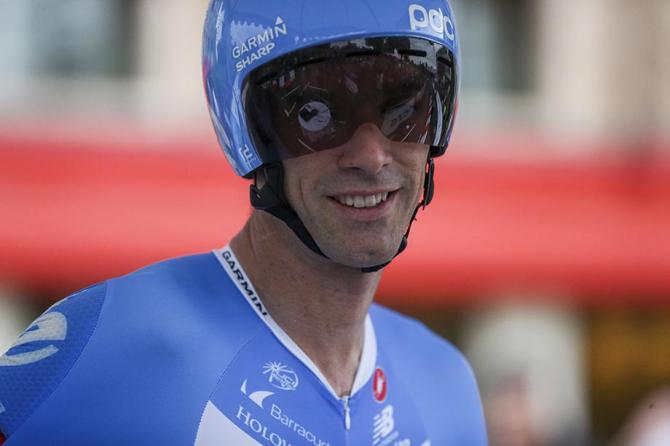
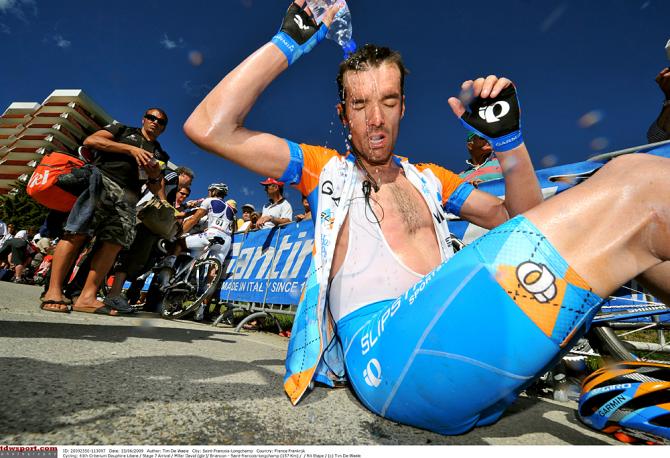
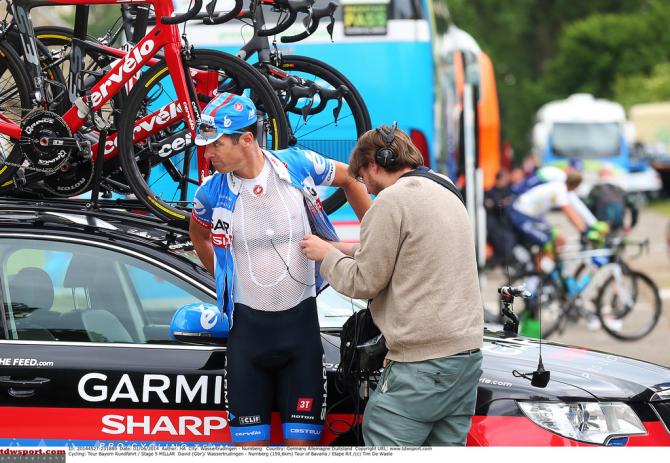
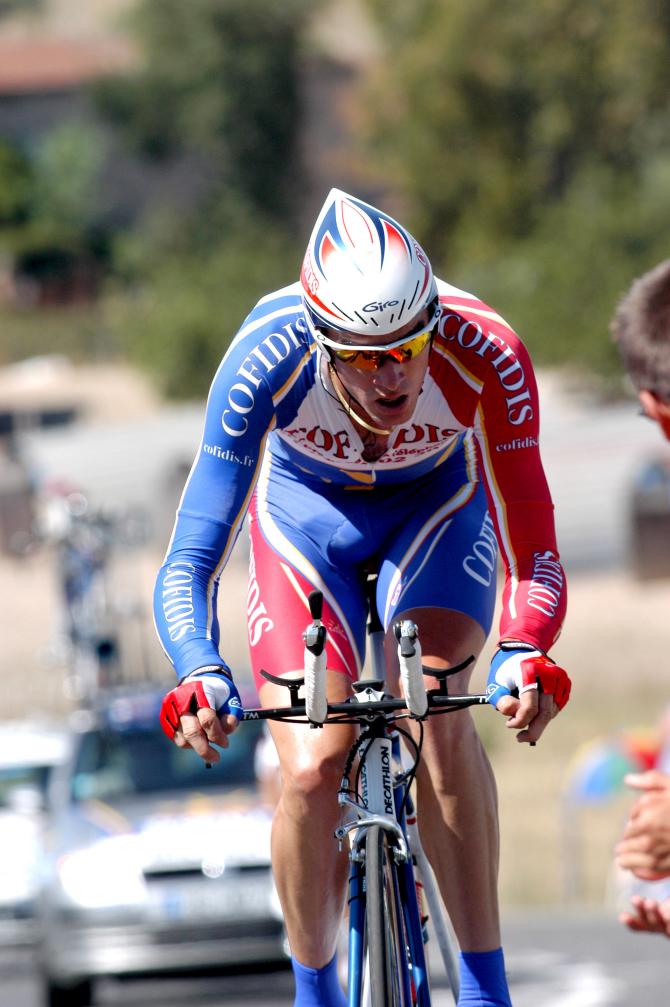
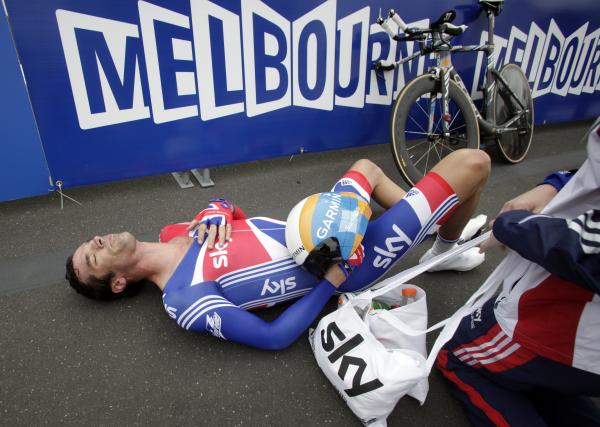
This article originally appeared in Cycling Plus
David Millar has a complex relationship with the Tour de France. It is far more than love and hate or heaven and hell. He has experienced extreme highs and lows in the 12 times he has raced Le Tour, yet still loves the unique madness of being one of the riders at the centre of the race.
“It’s been the downfall of me and the making of me,” says Millar. “I’ve been very lucky to experience the full spectrum of emotions of the Tour. From winning the prologue and the neophyte glory in 2000, to losing the prologue of the centenary edition of the Tour in Paris in 2003. I doped to win at the Tour, I’ve ridden them clean, I’ve won long time trials, I’ve won medium mountain stages, the team time trial and even been on the final podium in Paris as part of the best team. I’ve actually had every experience possible apart from winning the f**king thing!”
This year’s Tour de France will be Millar’s last as a rider. It will be his swansong, his adieu, a three-week-long farewell to the race that filled his summer for all of his adult life. He can’t wait to savour every moment of it.
“For me the Tour feels like having a Christmas in the middle of the season. You see people you don’t see for the rest of the year and there’s a special atmosphere,” he explains.
“It’s been such a major part of my life since I was a teenager; from being a kid growing up in Hong Kong who was reading the magazines, watching the videos and dreaming of being part of it, to just a few years later being in the yellow jersey after winning the opening stage. After that it became the centre of my life, of my year, for many years. It’s remained a dream come true for me.
“Fortunately, as I’ve got older I’ve managed to separate it in many ways but there’s still a special feeling. Whenever it gets close and when I’m there, it does feel part of me. It’s still ingrained in my psyche. It’s very important to me.”
The latest race content, interviews, features, reviews and expert buying guides, direct to your inbox!
It’s Millar time
The Tour de France left its first mark on Millar’s psyche in 2000 and he made history in the race by winning the prologue time trial on his debut at the age of 23.
He went on to win four other stages, including a much sought after team time trial victory in 2011 with Garmin-Cervélo after he had completed his ban for doping. But the Tour also left him with several deep scars.
The year 2000 seems a long time ago now but Millar held the yellow jersey for three days and was nicknamed ‘Le Dandy’ by the French media. He made it to Paris on his Tour debut, even attacking on the Champs Elysées, before celebrating in drunken style with friends from Hong Kong.
“That seems a long time ago even if the Tours all kind of blur into one long memory,” he admits. “Though looking back, I realise how young I was and how big it all was. I can remember being in a bubble for three weeks, it was all so surreal. It still is now, except that I’m not the last to leave the party any more.”
That Tour de France prologue victory and time in the maillot jaune made Millar a star of the sport and gave him team leader status at Cofidis, but the pressure to win again sparked his downfall and led him to dope for the first time. Millar raced the Tour de France clean in 2000 but he had already ‘crossed the line’ and started to do vitamin recovery injections.
Dark days
In his moving autobiography, Racing through the Dark, he reveals that he began doping after quitting the 2001 Tour de France. He crashed in the prologue and suffered through the first part of the race and eventually retired during the stage to Alpe d’Huez. That night, when Millar was mentally and physically at his lowest, an Italian teammate and the manager of the Cofidis team pressured him to take EPO in preparation for the Vuelta a España.
‘I walked into that room an anti-doper; I walked out of it a seasoned professional ready to do what was required of me,’ he writes in his book. Millar went on to win a stage at the 2002 Tour de France in Beziers and insists in his book he did not dope before or during that year’s race. Yet success convinced him he could do so much better if he took EPO. And he did, working with Spanish doctor Jesus Losa. He won the final time trial stage at the 2003 Tour de France, ahead of Tyler Hamilton, Lance Armstrong and Jan Ullrich. He also took EPO after finishing the Vuelta and dominated the world time trial championships in Canada to take the rainbow jersey.
However, his time with the Great Britain team made him feel guilty and gave him the conviction that he could have a successful and satisfying career without doping. He stopped injecting EPO into his veins, but it was too late. The French police were investigating doping at the Cofidis team. Empty syringes were found during a search of his flat in Biarritz and he eventually cracked and confessed after 47 hours in a police cell. The 2004 Tour de France went on without him; Millar would only go to Paris to see his lawyer and face trial. Massive tax debts also left him virtually bankrupt.
British Cycling banned Millar for two years and his life fell apart, but an appeal to the Court of Arbitration for Sport secured a slight reduction in his ban, allowing him to return in time for the 2006 Tour de France.
The race also became his saviour and helped him rebuild his career and his life. He managed to get a place on the Saunier Duval team and promised to be a role model and even became a member of the World Anti-Doping Agency (WADA) athlete committee. He rode the 2007 Tour de France, which started in London, and went on the attack on the road stage to Canterbury, proud to fly the flag for Britain, even if some did not think he deserved a second chance.
Millar earned his second chance by speaking out about doping and by helping to create the Slipstream team now known as Garmin-Sharp. It includes several former dopers, but it protects them and supports them to ensure they can race cleanly. The team enjoyed one of its biggest successes by winning the team time trial in the 2011 Tour de France ahead of BMC and Team Sky. Millar won his fourth road stage at the Tour in 2012, and the team also won the team prize and savoured a special moment together on the podium in Paris.
The Tour de France has always made Millar suffer for his moments of celebration, but it has also given him redemption from his doping sins.
In 2010 Millar was hurting like hell on stage 9 in the Alps due to the injuries of a crash early in the Tour. Nine years earlier he had climbed off on the Col de la Madeleine and decided to dope for the first time in his life. He was close to quitting yet again after being left behind with only the broomwagon for company. Yet Millar fought off his demons and somehow made it to the finish of the stage and went on to finish the Tour in Paris.
‘The 2010 Tour became my personal journey through suffering,’ Millar writes in his book. ‘It was something I didn’t know I could endure, or perhaps more importantly that I needed to endure. But I did. I kept going when it would have been easier to give up.’
A last Grand Boucle
When Millar travels to Yorkshire for this year’s Grand Départ, he hopes to return home with a monster hangover from his last after-race party in Paris and the emotions and memories of his farewell road trip around France with his Garmin-Sharp teammates. He knows it could include individual or team success, but will more likely be three weeks of pain and suffering. “One of the magic things about every Tour de France is that you never know how it’s going to turn out,” Millar says, with a hint of sadistic enthusiasm. “Each one has its own character and ends up creating a different story and series of experiences. It can be amazing and full of happy emotions or it can be a total mess and emotionally difficult.”
Millar’s final fling in France will be captured for posterity by the documentary crew that’s been following him all season. “I’m hoping to enjoy it and not let the emotions get in the way,” he says. “I think I’ll just be happy. Starting my last Tour in Britain is a great way to bow out. I’m lucky.
“I’ve fallen into a kind of road captain role this season for Garmin-Sharp. It’s become my niche, the theme of my long goodbye. The Tour will be the high point of it all, whatever happens, and I wouldn’t want it any other way.”

Stephen is one of the most experienced members of the Cyclingnews team, having reported on professional cycling since 1994. Before becoming Editor-at-large, he was Head of News at Cyclingnews. He has previously worked for Shift Active Media, Reuters and Cycling Weekly. He is a member of the Board of the Association Internationale des Journalistes du Cyclisme (AIJC).